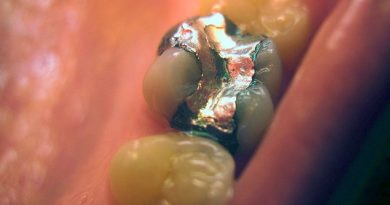5 things you can do to decrease systemic inflammation that have nothing to do with food
(Awaken | Avonne Leong) While dietary change is a great first line of defense, calming inflammation calls for a multi-faceted approach that delves into all aspects of lifestyle.
Calming inflammation
When you’re looking to calm systemic inflammation—the kind of chronic, low-grade immune reaction that can wreak havoc on your health in all kinds of insidious ways—the first change on the table is usually diet. While dietary change is a great first line of defense, calming inflammation calls for a multifaceted approach that delves into all aspects of lifestyle. The rewards, though, can be enormous, with changes in aspects of mental and physical health from clearer cognition and lifted mood to improvements in chronic ailments.
Get enough sleep
The Issue: You’ve heard it before: Get enough sleep. Sleep is foundational nourishment and restoration for your entire system, right down to the cellular and molecular level. Poor-quality sleep has been linked with many inflammation-related disorders, including cardiovascular disease, depression, and cancer. Working towards good sleep health is worth it.
The Fix: Get into a virtuous sleep circle by making sure of two things: sleep quantity and sleep quality. Make sure you’re giving your body the opportunity for seven to nine hours of sleep a night. Then, tweak your environment. Smooth out intermittent night noise with a white noise machine. Try to sleep and wake at consistent times, since regular sleeping patterns heighten the chances of good-quality sleep. And build in a wind-down period each evening—refrain from daytime activities such as snacks, exercise, and exposure to the blue light of screens, all of which can lead to poorer sleep. Studies show that charging your digital devices outside the bedroom can improve sleep duration and quality.
De-stress
The Issue: The physiological changes that come with stress are a natural response to threat. When the body is threatened, it sends out pro-inflammatory cytokines to deal with the problem, and when the cytokines linger even after the party’s over, they can cause problems.
The Fix: How to convince your mind and body that it’s safe to stand down? Two of the simplest and most effective ways to manage stress are to laugh and spend time with friends and loved ones.
Watching your favorite funny movie, sharing a joke, playing with a puppy, or hanging with your BFF are all research-backed ways to soothe your frazzled amygdala. If you can, do it outside; just 20 minutes of quiet immersion in a natural environment lowers cortisol levels. If you’ve just got a minute, breath is a quick route to destressing. When you’re feeling tense, take a moment to try the yogic 4-7-8 breath: breathe in slowly for a count of four, hold it for a count of seven, then breathe out for a count of eight. In the longer term, a meditative practice in whatever form—sitting, walking, the slower forms of yoga, or using a meditation app like Insight—has long-term benefits that can actually retrain the mind so it’s not as likely to get stressed in the first place.
Scrutinize your habits
The Issue: Here’s yet one more reason to stop smoking and make sure your alcohol intake is moderate; both habits, particularly smoking, can lead to higher levels of systemic inflammation. If you like a glass of wine with dinner, the good news is is that multiple studies have shown that moderate consumption of wine or beer actually lowers markers of systemic inflammation. It’s with excess alcohol intake that inflammation starts to be a problem. Sorry, smokers—there’s no such good news for you, although it only takes a few weeks for inflammation markers to go down after you quit.
The Fix: Alcohol is fine, even beneficial, in moderation. Smoking’s a hard no.
Exercise
The Issue: One of the best things you can do to calm systemic inflammation is to get moving. Although long periods of intense exercise can increase inflammatory markers, even 20 minutes of moderate exercise, like fast walking, triggers sympathoadrenergic activation, a process that suppresses the body’s production of TNF, a proinflammatory cytokine. But a few Peloton sessions per week don’t give you a couch-potato pass for the rest of the time. Sitting for long periods, even for those who exercise several times a week, elevates the body’s inflammation levels, especially for women.
The Fix: Build motion into your daily life. Make sure to get up and walk once an hour. Outside is better. For a two-pronged pushback against inflammation, try mind-body activities like yoga, tai ch’i, and qigong.
Double-check your medicine cabinet
The Issue: Many people take non-steroidal anti-inflammatory drugs (NSAIDS) to tamp down acute inflammation. But the key word is “acute,” or temporary. Research suggests that taking NSAIDS for longer than recommended can actually cause the body to rebound to a more inflammatory baseline state when the drugs are stopped. Antibiotics can also temporarily lower inflammation, but that research has shown can antibiotic use can actually heighten the risks for subsequent inflammatory disorders, particularly in the gut.
The Fix: Use with care. You don’t have to banish these useful medications from your medicine cabinet—but be careful about overuse of NSAIDS. And take antibiotics only when necessary, under the close supervision of your doctor.
Source: Awaken
You may also like:
Smiles for inner and outer peace
The scientifically proven benefits of sleeping in total darkness




